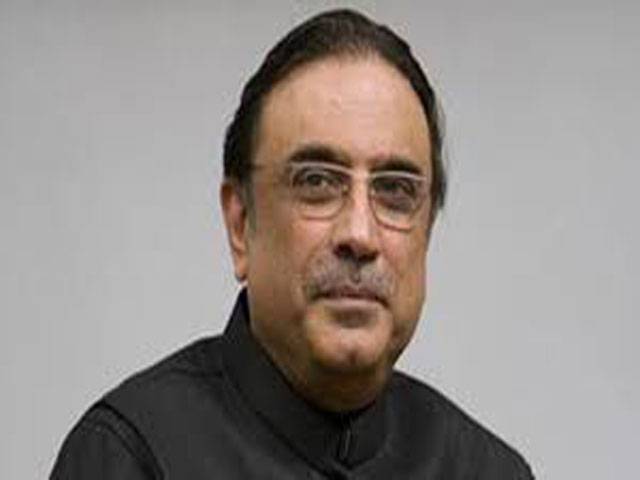ISLAMABAD - Terming it the trial on the grave of Shaheed Benazir Bhutto, Pakistan People’s Party (PPP) Co-Chairman Asif Ali Zardari on Tuesday challenged the Supreme Court’s August 29 order whereby the court had sought details of his and his relative assets covering a period from 2007 to date.
Aggrieved and dissatisfied with the top court’s order, Zardari said that seeking assets’ details of his family will tantamount to conduct the trial of his martyred wife Benazir Bhutto.
“Whether the impugned order (dated August 29) even seeks the details of assets of the petitioner’s late wife Shaheed Mohtarma Benazir Bhutto and whether this equates to giving chance to Syed Feroze Gillani to conduct a trial on the grave of the martyr?” Zardari questioned in his petition.
The order dated August 29 was passed on a petition filed by Syed Feroze Gillani requesting the top court for a ruling to compensate all the losses and damages suffered by national exchequer in the backdrop of National Reconciliation Ordinance (NRO) 2007, including the loss of $60 million in the Swiss Banks representing the illegal funds acquired through corruption and money laundering by Zardari.
Besides former president Zardari, his predecessor General (retd) Pervez Musharraf, former attorney general Malik Mohammad Qayyum and the National Accountability Bureau (NAB) were also made respondents.
Zardari’s Counsel Farooq H Naek challenged the top court’s August 9 order stated that Feroze’s petition was based on a news report and similar false and frivolous cases had been registered against his client on account of political basis.
Zardari further contended that the issue of double jeopardy unearthed since he had already been acquitted in a number of cases on the same subject.
Zardari, in his petition, contended that the top court’s order suffered from errors and it was without jurisdiction adding that such an order cannot be passed under Article 184(3).
It is further contended that the top court’s impugn order was contrary to the established jurisprudence. “There does not exist any provision in the law of Pakistan which requires a person to disclose all his assets and business activities that e may have conducted over the past decade.”
The order, it is argued, goes even further insofar as it demands not just the details of the business activities of Zardari but also the assets of his children and relatives who may be dependent and that too for a period spanning over a decade.
“Even under income tax law the limit prescribed for assessment by Section121 of the Income Tax Ordinance 2001 is five years and anything before the same is exempt from assessment.”
Under Section 60 of the Election Act 2017, a candidate is only to furnish a statement of his assets and liabilities for the preceding year whereas under the August 29 order the affidavit to be supplied covers the period from October 5, 2007 till date which is unheard of.
Likewise, the appeal contended that a candidate was only supposed to furnish details of his spouse and dependent children under the election law whereas the August 29 order prima facie sought children’s assets who are not dependent.
“Such practice is unprecedented and does not find basis on any law of land,” the petition added.
“The impugned order even seeks the details of assets the petitioner’s late wife Shaheed Benazir Bhutto. This equates to aiding one Syed Feroze Shah Gillani to conduct a trial on the grave of a martyr.”
“The impugn order erroneously shifts the burden of proof to the petitioner (Zardari) to prove that he is innocent which is something that he has done time and again insofar as he has been aacquitted multiple times on merit,” stated the petition, adding that the actual burden was on a person who brought this matter in the Court.
“Even otherwise since the petitioner has been acquitted in cases pertaining to the same subject matter to agitate the same by attempting to gather evidence from the petitioner himself would be contrary to the double jeopardy principle enshrined in Article 13 of the Constitution,” contends Zardari.
It is pleaded before the top court to review its earlier order of August 29 of 2018.






